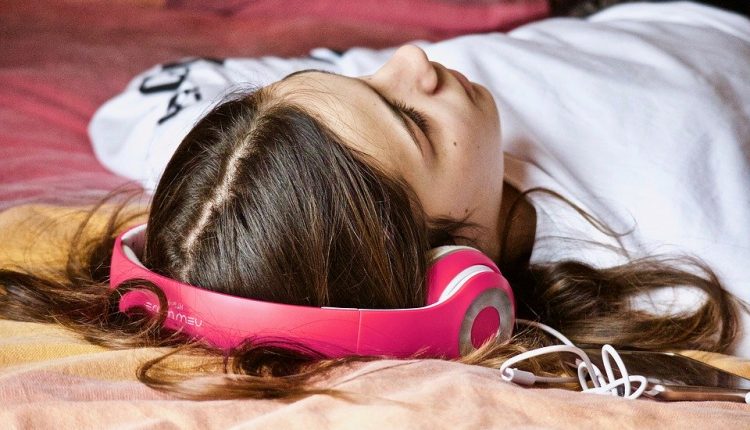
Teenagers and sleep disorders: when to consult a specialist?
With adolescence, sleep patterns change. Teenagers tend to go to sleep later and later and may have problems waking up and throughout the day
TEENAGERS: IS THE CHANGE IN TEENAGE SLEEP RHYTHM NORMAL?
In the teenage age group, sleep disturbances are an increasingly common problem.
There are, first of all, physiological reasons: in fact, in adolescence the circadian rhythm (what we might call the ‘biological clock’) undergoes changes.
Using an image we could say that teenagers become a bit ‘owlish’ in the sense that they tend to move their sleep later, favouring the second part of the night for sleeping; they therefore have a tendency to fall asleep later and wake up later with possible difficulty waking up in the early hours of the morning.
With the arrival of Covid, the lifestyle and time distribution of different commitments throughout the day has also changed for younger people: students are much more at home and potentially use digital media more for DAD and also to maintain sociality.
All this has further aided the forward shift in sleep-wake rhythms that we described earlier as physiological in adolescents but which can become a problem to deal with when it becomes a true circadian rhythm disturbance, with falling asleep and waking up times so shifted forward as to make self-care and schoolwork impossible.
WHEN IS IT POSSIBLE TO SPEAK OF A SLEEP DISORDER IN ADOLESCENTS?
When the sleep displacement is such that it impacts on the performance of morning activities such as
- the difficulty of getting up on time
- of eating breakfast;
- reduced school performance.
Obviously, in the different circumstances, it is necessary to assess whether this difficulty in waking up in the morning is only linked to incorrect habits or is based on a primary sleep disorder.
It is also important to emphasise how the difficulty in performing adequate tasks in the morning can trigger vicious circles such as a decline in school performance, feelings of inadequacy, difficulties in relationships with parents, family conflicts and social isolation.
A worried child in turn may sleep badly.
WHAT SIGNS SHOULD A PARENT PICK UP ON?
Parents should watch out for bad habits that may alter sleep time, sleep duration and sleep quality.
If they notice, for example, difficulties waking up in the morning or falling asleep in the evening, it may be useful to assess whether
Does the child use electronic media (such as smartphones, tablets, video games) excessively in the evening? It will probably be appropriate to talk to the child to try to regulate the use of such devices and decrease their use in the evening, especially at bedtime.
The possibility that the adolescent has introduced coffee or other caffeinated drinks should also be considered. On the one hand, it is ‘physiological’ at this age to acquire certain habits typical of adulthood, and on the other hand, it will be essential to discuss them openly with the teenager, explaining their effects and accompanying them to conscious and open behaviour.
A particular focus is then on certain stimulant supplements. We live in a society that often has the cult of performance at all costs. There are many young people who take, with do-it-yourself systems and not recommended by a doctor, pharmaceutical products that promise to keep their attention high. Often, however, especially if taken at the wrong times, they can do so to the detriment of sleep.
Instead, it is important for children and parents to know that rest is crucial for the well-being of the body and also for performance and performance at school, as well as in sports. Reducing those hours of rest that are important for the body is always counterproductive.
WHEN SHOULD A CHECK-UP AT A SLEEP THERAPY CENTRE BE CONSIDERED?
It is important to monitor your child’s sleep in order to detect any abnormalities.
These include, for example:
- atypical motor activity;
- talking during sleep;
- respiratory abnormalities such as snoring;
- pronounced night sweating.
A wake-up difficulty in the morning, which may be followed by difficulties in the child’s activities during the day, may also be an alarm bell.
In all these cases, do-it-yourself therapy should be discouraged.
A doctor will be able to assess what to do. In many cases, the sleep disorder can be cured with behavioural norms.
In other situations, specific, case-specific therapies will be evaluated.
Read Also
Emergency Live Even More…Live: Download The New Free App Of Your Newspaper For IOS And Android
Pediatric Obstructive Sleep Apnea
Kids With Sleep Apnea Into Teen Years Could Develop High Blood Pressure
Obstructive Sleep Apnoea: Symptoms And Treatment For Obstructive Sleep Apnoea
Obstructive Sleep Apnoea: What It Is And How To Treat It
Grinding Your Teeth While You Sleep: Symptoms And Remedies For Bruxism
Long Covid And Insomnia: ‘Sleep Disturbances And Fatigue After Infection’
Sleep Disorders: The Signs Not To Be Underestimated
Sleepwalking: What It Is, What Symptoms It Has And How To Treat It
What Are The Causes Of Sleepwalking?
Catatonia: Meaning, Definition, Causes, Synonyms And Cures
Difference Between Catatonia, Catalepsy And Cataplexy
Cataplexy: Cause, Meaning, Sleep, Cure And Etymology
Sleep Apnea: Causes And Remedies
Polysomnography, The Test To Diagnose Sleep Disorders
Paediatrics, What Is PANDAS? Causes, Characteristics, Diagnosis And Treatment
Pain Management In The Paediatric Patient: How To Approach The Injured Or Aching Children?
Pericarditis In Children: Peculiarities And Differences From That Of Adults
In-Hospital Cardiac Arrest: Mechanical Chest Compression Devices May Improve Patient Outcome


